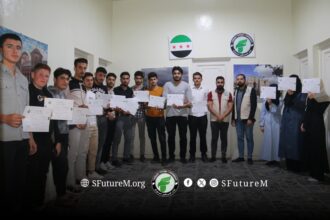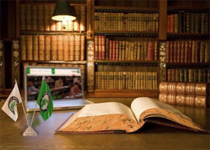Behind the confiscated funds management law
According to the Syrian law in which the Syrian regime operates, the Syrian People’s Assembly approved by majority the draft law related to the management and investment of movable and immovable funds confiscated pursuant to a final judicial ruling that cannot be appealed. According to this law, the Ministry of Finance will undertake the management and investment of movable and immovable funds confiscated pursuant to a judicial ruling. With the exception of lands located outside the regulatory plans, their management and investment will be for the Ministry of Agriculture. What is noteworthy about the law is its implementation retroactively, meaning…
It applies it to all previous provisions, and if the funds are a company or shares or shares in a company, this company remains subject to the provisions of the Companies Law, and is managed and invested by the Ministry of Finance in a manner that does not conflict with the Companies Law.
The Prime Minister controls the ownership of confiscated funds such that he can transfer them to public bodies of an administrative nature without compensation at the request of the competent minister, without any tax being incurred.
The regime abolished the Emergency Law and the Supreme State Security Court, but issued Law No. 22, according to which it established the Anti-Terrorism Court, giving the Public Prosecutor the authority to confiscate the property of anyone accused of terrorism, and they are the majority of Syrians who rebelled against Assad’s authority, even with a post on Facebook! Article 12 of the Anti-Terrorism Law stipulates that “the court, by conviction, shall order the confiscation of movable and immovable property, their proceeds, and the things that were used or were intended to be used in the commission of the crime.” On a daily basis, we can see thousands of rulings in which real estate properties were confiscated under this article.
Today, after this decision, the sale of real estate will be available to the concerned minister, whether the Minister of Finance or the Minister of Agriculture, if any confiscation decision becomes final and cannot be appealed by way of cassation.
Confiscated real estate can be an assistant to the government in securing the needs of the functioning of public facilities for institutions, especially the files of the corrupt whom the regime began to trim after economically strangling it through the Caesar Act and the Captagon, and restricting the Lebanese banks that were the regime’s breathing lung, such as the decisions that were issued to pre-emptively seize The money of Syrian businessmen, including businessman Rami Makhlouf and Ayman Jaber, in addition to the money of their wives under the pretext of “importing to smuggle goods that escaped seizure.”
What is the truth about the law?
According to intersecting private information, we can reveal upcoming steps in this file:
1- All properties whose owners have left, whether they are opponents or not, will be confiscated initially through appealable judicial courts, allowing supporters to pay huge sums of money, perhaps equivalent to the value of the property itself, as bribes.
2- Properties whose owners have not come to file appeals against the court’s decisions will be sorted into three sections:
The first section: Properties of personalities known for their opposition to the regime, and these provisions will be concluded initially.
The second section: real estate owners who are not affiliated with the opposition. These will be divided into two parts: one whose real estate is not important, and the other whose real estate is important.
Section Three: Real estate in important locations. The provisions of these will be concluded in any way, to be confiscated, so that non-important properties remain to be a peg that shows the Syrian judiciary in the regime’s areas as transparent and fair.
3- Cooperation will be established between Iranian companies, or those affiliated with Iran, with public sector institutions, and ownership of the confiscated real estate will be transferred to these companies through long-term contracts that may end with ownership across the bridge of public institutions.
Therefore, we in the Syrian Future Movement advise that rapid legal action be carried out through the international law portal, which is currently available, and indeed the only portal for Syrians, as there are several methods that can be used to confront such as the law of management and investment of movable and immovable funds confiscated in Syria, including:
- International litigation: Individuals or groups who believe that their rights have been violated under this law can file a lawsuit in international court. These lawsuits may include allegations of human rights violations or other violations of international law, and this is the task of the affected individuals. However, there is a need to establish a legal association with donor lawyers who will undertake the task of following up on individual cases in the competent international courts.
- International pressure: Countries or international organizations such as the United Nations can exert diplomatic pressure on the Syrian government to change or abolish this law, and this requires political efforts by the Syrian political entities.
However, these options usually require international intervention and can be a long and complex process, which is why the human rights struggle should not be underestimated as an aspect of the revolution against tyranny. Jacqueline K. Al-Shami







